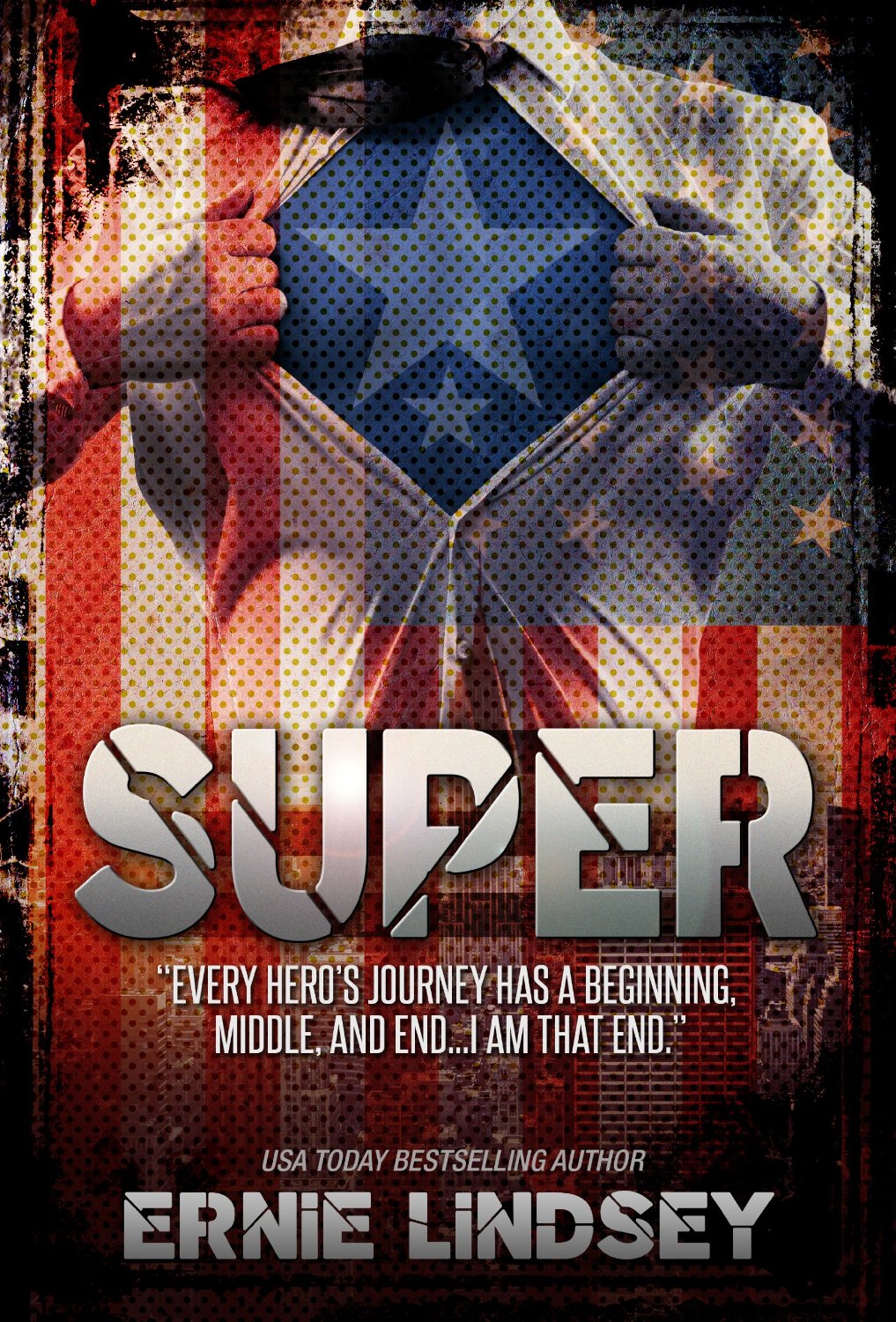USA Today bestselling author Ernie Lindsey has a new book release today: Super -- a novel about Superheroes... and a lot more. Here's the blurb:
"A world mourning a fallen superhero.Isn't that intriguing? And Ernie knows "suspense" and "intrigue", as demonstrated by his bestselling thriller series Sara's Game.
A president targeted for assassination.
A conspiracy that runs deeper than anyone expects.
Leo Craft is the best at what he does; he assassinates superheroes, but only the ones who deserve it. Life is good, simple, until an ultra-secretive government agency hires Leo to execute two impossible tasks: eliminate the world's foremost superhero, Patriotman, and hunt down a fellow assassin whose target is the President of the United States.
When everyone wears a mask, trust is hard to come by - and even the elusive truth can be caught in a web of lies."
To celebrate his new book release, Ernie has kindly agreed to come to CHIMERAS today to talk about his books and writing process. Welcome, Ernie!
EEG: I love the premise of your new book, Super: "Even heroes wear masks." Tell us about the inspiration behind the book and what got you to write it.
EL: I mentioned this to another friend and I feel like a walking cliché, but I actually had a dream about the plot. Or, at least the initial setup. I had very clear images of the South Korean woman in a white pantsuit, a superhero that had been murdered on a private yacht, and it had happened in the Maldives. I woke up before I found out what happened and the idea intrigued me so much, I had to drop the novel I was working on and start this one, just to see how the story played out.
EEG: How did you end up taking Oceanography classes?
EL: That was my original intended major when I first arrived at Old Dominion University in Norfolk, VA. I grew up in the mountains, but had always loved the ocean on family vacations, so I thought it would be a good way to get myself close to, or on, the water. As it turns out, I’m not that scientifically savvy, and making up fictional things in my head is far more interesting than studying things that are real.
EEG: Your books range across different genres, but all your storyline’s are very suspenseful: is suspense something that comes naturally to you?
EL: As most authors know, this isn’t easy. It can be exhausting and really wear you down having to create, create, create (even though I absolutely love it), so writing suspense is what keeps me going back to the keyboard. I love the challenge of developing a storyline where someone absolutely cannot stop turning the pages. Dan Brown did that amazingly well with The Da Vinci Code. Every chapter ended on a cliffhanger, and while I don’t necessarily model my style on his, I tend to replicate that sense of urgency as best I can.
EEG: Do you outline or are do you “go with the flow” when it comes to a new story?
EL: I write like I read, in that I have no idea what’s coming next. I completely go by the seat of my pants. I’ve tried to outline projects before, but it takes all of the fun out of it for me if I know what’s going to happen three hundred pages later. I start with a character in a whoa-what? situation and then try to find out how they got there and why. I surprise myself with plot revelations all the time. That, too, keeps me going back to the keyboard. I need to know.
EEG: Ha, me too. I don't outline ever, finding out the story as I go is the fun part! :-)
What's your next project about?
EL: I’m nearly finished with the sequel to Warchild: Pawn, the first novel in a planned series about a dystopian future where another Civil War begins in Virginia. I had originally intended for it to be a three-book series, but I can now see that it’s going to be much, much bigger than that! Plus, one cool thing about the first book is that it’s in the Quarter-Finals of Amazon’s Breakthrough Novel Award contest. For one of my works to make it to the Top 500 out of 10,000 is amazing, even if it doesn’t squeeze its way into the next round.
EEG: Congratulations and best of luck on the next round!
Ernie Lindsey's latest book Super is out on Amazon today! And to find out more about Ernie's books and new releases, follow him on his blog, Facebook and Twitter




